8 start with E start with E
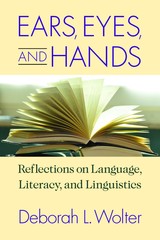
Wolter reveals and rectifies the impact of deficit mindsets in the educational system regarding race, ethnicity, economic status, gender, and disability. As a literacy specialist, she works with students who fall through the cracks in a system that strives to embrace the diverse backgrounds and abilities found in the classroom. Her passion for engaging students and cultivating literacy shines in the stories she tells, which serve as parables that allow readers to evaluate their own attitudes and assumptions. Educators, parents, and community members will benefit from Wolter’s examination of sociolinguistics and language privilege as she identifies how ethnocentrism and ableism are contributing to negative educational outcomes for some students. With humor and warmth, she offers a path toward approaching language and listening as a gateway to connection and understanding, both inside the classroom and beyond.
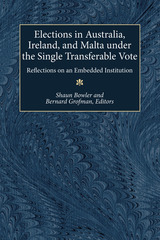
Contributors to the volume are Shaun Bowler, David Farrell, Michael Gallagher, Bernard Grofman, Wolfgang Hirczy, Colin Hughes, J. Paul Johnston, Michael Laver, Malcom Mackerras, Michael Maley, Michael Marsh, Ian McAllister, and Ben Reilly.
Shaun Bowler is Professor of Political Science, University of California, Riverside. Bernard Grofman is Professor of Political Science, University of California, Irvine.
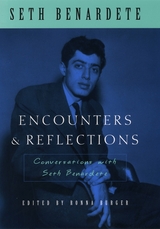
The first part of the book discloses vignettes about fellow students, colleagues, and acquaintances of Benardete's who later became major figures in the academic and intellectual life of twentieth-century America. We glimpse the student days of Allan Bloom, Stanley Rosen, George Steiner, and we discover the life of the mind as lived by well-known scholars such as David Grene, Jacob Klein, and Benardete's mentor Leo Strauss. We also encounter a number of other learned, devoted, and sometimes eccentric luminaries, including T.S. Eliot, James Baldwin, Werner Jaeger, John Davidson Beazley, and Willard Quine. In the book's second part, Benardete reflects on his own intellectual growth and on his ever-evolving understanding of the texts and ideas he spent a lifetime studying. Revisiting some of his recurrent themes—among them eros and the beautiful, the city and the law, and the gods and the human soul—Benardete shares his views on thinkers such as Plato, Homer, and Heidegger, as well as the relations between philosophy and science and between Christianity and ancient Roman thought.
Engaging and informative, Encounters and Reflections brings Benardete's thought to life to enlighten and inspire a new generation of thinkers.
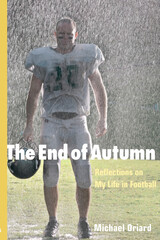
After graduating, he signed with the Kansas City Chiefs and head coach Hank Stram. There he learned what it meant to be "owned." He rediscovered the game as it was played by grown men with families who were still treated like children and who dreaded nothing more than the end of their football careers. And without their fully realizing the consequences, every hard tackle inflicted its injury, some gradually growing into chronic conditions, some suddenly cutting a player's career short and ushering him off the field to be soon forgotten.
In this thoughtful narrative, Oriard describes the dreams of glory, the game day anxieties, the brutal training camps and harsh practices, his starry-eyed experience at Notre Dame, and the cold-blooded business of professional football. Told from the inside, the book leaves aside the hype and the pathos of the game to present a direct and honest account of the personal rewards but also the costs players paid to make others rich and entertained.
Originally published in 1982, The End of Autumn recounts the experiences of an ordinary player in a bygone era--before ESPN, before the Bowl Championship Series, before free agency and million-dollar salaries for NFL players. In a new afterword, Oriard reflects on the process of writing the book and how the game has changed in the thirty years since his "retirement" from football at the age of twenty-six.
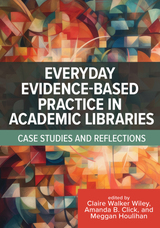
Everyday Evidence-Based Practice in Academic Libraries: Case Studies and Reflections collects excellent, thorough examples of EBP across functional areas of academic libraries and includes many evidence types in a variety of contexts. Five sections explore:
- Understanding Users
- Leadership and Management
- Instruction and Outreach
- Collections
- Open Initiatives
Everyday Evidence-Based Practice in Academic Libraries offers high-quality evidence from a variety of perspectives and inspires a commitment to evidence-based practice in your day-to-day work and library culture.
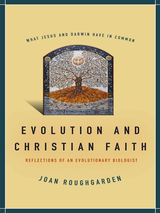
"I'm an evolutionary biologist and a Christian," states Stanford professor Joan Roughgarden at the outset of her groundbreaking new book, Evolution and Christian Faith: Reflections of an Evolutionary Biologist. From that perspective, she offers an elegant, deeply satisfying reconciliation of the theory of evolution and the wisdom of the Bible.
Perhaps only someone with Roughgarden's unique academic standing could examine so well controversial issues such as the teaching of intelligent design in public schools, or the potential flaws in Darwin's theory of evolution. Certainly Roughgarden is uniquely suited to reference both the minutiae of scientific processes and the implication of Biblical verses. Whether the topic is mutation rates and lizards or the hidden meanings behind St. Paul's letters, Evolution and Christian Faith distils complex arguments into everyday understanding. Roughgarden has scoured the Bible and scanned the natural world, finding examples time and again, not of conflict, but of harmony.
The result is an accessible and intelligent context for a Christian vision of the world that embraces science. In the ongoing debates over creationism and evolution, Evolution and Christian Faith will be seen as a work of major significance, written for contemporary readers who wonder how-or if-they can embrace scientific advances while maintaining their traditional values.

"I'm an evolutionary biologist and a Christian," states Stanford professor Joan Roughgarden at the outset of her groundbreaking new book, Evolution and Christian Faith: Reflections of an Evolutionary Biologist. From that perspective, she offers an elegant, deeply satisfying reconciliation of the theory of evolution and the wisdom of the Bible.
Perhaps only someone with Roughgarden's unique academic standing could examine so well controversial issues such as the teaching of intelligent design in public schools, or the potential flaws in Darwin's theory of evolution. Certainly Roughgarden is uniquely suited to reference both the minutiae of scientific processes and the implication of Biblical verses. Whether the topic is mutation rates and lizards or the hidden meanings behind St. Paul's letters, Evolution and Christian Faith distils complex arguments into everyday understanding. Roughgarden has scoured the Bible and scanned the natural world, finding examples time and again, not of conflict, but of harmony.
The result is an accessible and intelligent context for a Christian vision of the world that embraces science. In the ongoing debates over creationism and evolution, Evolution and Christian Faith will be seen as a work of major significance, written for contemporary readers who wonder how-or if-they can embrace scientific advances while maintaining their traditional values.
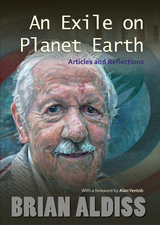
Brian Aldiss is one of the great figures in science fiction. Classics in the genre, his books serve as portals to other worlds, captivating readers with strange and shocking narratives that have been a force for further experimentation within the genre. In addition to a highly successful career as a writer of both fiction and science fiction, Aldiss is also an accomplished artist and literary critic.
READERS
Browse our collection.
PUBLISHERS
See BiblioVault's publisher services.
STUDENT SERVICES
Files for college accessibility offices.
UChicago Accessibility Resources
home | accessibility | search | about | contact us
BiblioVault ® 2001 - 2024
The University of Chicago Press









